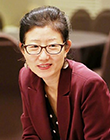Radical Border-Traversing: Theological Education in a Glocalized World of Disjuncture
Glocalized Characters of Theological Education
In an era of globalization, one finds it hard to draw a sharp line between the local and the global due to the interconnectivity of our life in the world. In the 1980s, a word emerged to illustrate this connectivity of local and global: glocalized. What people used to perceive as local is now inevitably intertwined with what people traditionally considered global. Everything interrelates with everything else. In this rapidly changing contemporary world, where globalization and neo-imperialism impact the concrete reality of people both within and outside Christianity, at home and abroad, determining how to understand/construct Christianity in terms of its theological education, discourse, and institutional practice in various parts of the world, and how to form a worldly coalition and solidarity, have become more pressing issues than before.
Theological education, like education in general, has played two roles: a mere reproducer of existing reality while also a visionary challenger of the status quo that requires a prophetic criticism of the world to create the possibility for an alternative reality. It is important for educators to revisit the roles of theological education that individual theological schools have played. To envision a transformative theological education requires one to take up and seriously challenge the issue of power/knowledge on the one hand and on the other, to seek fundamentally to reconstruct and reimagine theological discourse, curriculum, pedagogy, and institutional systems from a perspective of the geopolitical context of human equality and plurality.
In an era of globalization, the traditional theological education in the fourfold pattern of Bible, History, Theology, and Practice has encountered fundamental challenges through the emergence of new discursive and geopolitical trends. One of the challenges is a growing disjuncture between the globalization of knowledge and the knowledge of globalization. The uneven process of economic globalization has created a fragmented distribution of resources of learning and teaching between the global North and the global South. It is not, therefore, surprising to see that most resources for theological education—institutional, financial, and human—with enormous means to research, archive, and disseminate knowledge, have resided in the global North, while the dire need for theological educational infrastructures and resources has drastically grown in the global South. Furthermore, neocolonialism and neoimperialism take new forms of political, cultural, and economic dependency on particular Western nations such as the United States.
In this context, I have a strong reservation about the way scholars mis/use the rhetoric of "shifting the center of Christianity from the North to the South," primarily due to the absence of critical challenge in using the framework of the center-margin. If Christian demography matters in such a center-margin axis in terms of Christian geopolitics, I wonder why gender scholars have not applied to Christian demography the rhetoric of the shift of the center, even when women have always outnumbered men in Christianity. When we adopt the notion of power in terms of the production, geopolitics, economics, archives, and dissemination of knowledge, it becomes obvious that the quantitative growth of Christians in the global South does not necessarily bring to the disempowered the power of the center in Christian geopolitics. At the same time, the decline in numbers in the global North does not automatically diminish the power of the global North as the center of the Christian geopolitics.
The Euro/US as the Sovereign Subject of Theopolitical Power/Knowledge
Nowadays no one outside the US has the luxury to ignore what is happening inside the US.
The EuroUS will continue to remain the sovereign, theoretical subject of all knowledge in theological education, whereas the Rest are and will be in a position of subalternity. Numerous postcolonial critics have pointed out that scholars in the West have consistently excluded non-Western thought from the constitution of a knowledge system: people have regarded the theological discourses from the West as normative theology, whereas they have labeled theologies from the non-West as indigenous or contextual theology. This perception and naming imply the very West-centric idea that theologies from/by non-Westerners are applicable only to a particular context and thereby lack a universal status, unlike theologies from the West. Furthermore, the absence of reciprocity of knowledge between the EuroUS and the Rest seems the natural order of things. In this context, theologians and educators from the EuroUS have produced and reproduced universal theological knowledge and educational systems that “embrace the entirety of humanity” but “in relative, and sometimes absolute, ignorance of the majority of humankind—that is, those living in non-Western cultures (Chakrabarty 2000, 29). The question as to how an insurrection of subjugated knowledge or a return of knowledge is possible in theological education remains a shared task across regional boundaries of the world.
Here one should note that reclaiming the subalternized knowledge systems does not simply mean to reverse the Western colonial universalizing gesture and replace Western with the non-Western knowledge systems and perspectives; one could call that a postcolonial revenge. The task of getting beyond the EuroUS-centrism in theological discourse, curriculum, or institutional systems in a global context is far from exercising a politics of reversal or postcolonial revenge by the non-EuroUS.
Centralizing Authority—Dilemmas of Academic Standardization
Linguistic imperialism is still at work in the academy of the US, and it affects the other regions of the world. For instance, most theological schools in the US have language requirements for doctoral and advanced master’s students, and one can easily notice that the standard academic languages are predominantly French and German. The terms sixteen ATS theological schools use in the language requirement guidelines are "scholarly language," "modern languages," "languages for scholarly research," or "modern language of scholarly discourse," which most schools use to refer primarily to French and German. Only a few schools allow students to take a second language other than French or German, but those students need to submit a rationale for substituting a language other than French or German, while the schools do not offer a rationale for why German and French still remain the standard scholarly languages as if the reasons were self-evident. In this context, ATS theological schools naturalize English, German, and French as the authentic languages for scholarly research, whereas other languages are rendered inauthentic for academic research and discourse. Through this institutional policy of standardization of academic languages, most theological schools reinforce and reproduce—though unwittingly—the colonial mentality of the EuroUS-centrism in the theological education in a global context. Furthermore, the academic standardization of former colonial languages—English, French, German and/or Spanish—in the US theological schools makes non-EuroUS scholars/students and their works look less adequate for the production of theological discourse. One can also connect the academic standardization of language issue to the hiring of scholars from outside the US: when a theological school evaluates prospective faculty members, what language criteria the school applies to evaluate their scholarly works would depend on the institutional sensitivity to the issue of standardization of scholarly languages.
It is important, therefore, to scrutinize the impact of the spread of only certain languages as the universal scholarly languages in theological education in the US. The dominance of a particular language would mean the dominance of the values, worldviews, and powers of the language in the rest of the world, which is a form of linguistic imperialism. One cannot confine the impact of the policies of theological schools in the US only to North America as one of the regions in the world. Instead, the impact of the way US academia sets the academic standards affects the rest of theological education in the world because no one nowadays has the luxury to ignore what is happening in US academia.
One can also extend the question of academic standardization to the issue of the required and elective courses in theological education. The questions that we must ask include the following: What are the standards in making the institutional decisions about the required or elective courses? Whose perspective (administrator, chairs of disciplinary areas, etc.) or what kind of discursive position (modern, postmodern, feminist, postcolonial, and so forth) does a theological school apply in the decision-making process? Whose voices does a school hear or silence in the decision-making process? Who has the power to include or exclude some courses from the required courses?
Radical Border-Traversing: Theological Education-to-Come
We are living in a world in which the obstacles of dislocation, migration, and cultural survival are becoming a daily struggle for many people throughout the world. Dislocation and/or relocation constantly alter one’s sense of identity because migration, for instance, involves more than a physical crossing of the national/regional/cultural borders. In this context, various movements that people make today require totally different articulations about the meanings and socio-politico-cultural implications of people’s identities, affiliations, or allegiances both as individuals and groups. Some scholars contend that we are experiencing the beginnings of the end of national belonging and that the context for a citizenship based on belonging to a single nation is being eroded, although the process and experience of erosion is not even or uniform.
We are entering an era in which the number of people who carry the multiple-belonging, multiple-identities, or diasporic subjectivity is ever-growing, and the traditional way of boundary-drawing does not reflect the complexity of people’s lives of in-between. In this sense, the "either-or" approach to the issue of Christianity in the global North versus the global South, the local versus the global, or the particular versus the universal is repeating and reproducing the dualistic mode of thinking that others and I have criticized. This binary approach also loses its discursive effectiveness due to the inextricable interconnectedness of each set of two poles. How to constantly move back and forth between the borders of these seemingly separate but inseparable aspects of reality is one of the significant issues that the theological educators should wrestle today.
Internationalization or globalization of theological education does not happen just by expanding educational sites "out-there" by exchanging faculty and students with schools outside one’s region or by designing international travel courses; these actions pertain to the exteriority of theological education. An authentic meaning of the globalization of theological education would be possible only when theological educators’ mode of seeing/reading the world becomes transformed, not merely in the construction of new theological discourses but also in the radical transformation of the concrete implementation of the discourse in the praxis of an individual theological school. The radical transformation has to do with the interiority of theological education. Here, the two sites, the exteriority and interiority, of theological education are irreducible to one another but at the same time inextricably intertwined.
What theological educators in the world need to do in constructing new models for theological education and in reconstituting the nature and praxis of theological education is to engage the universals of justice, equality, freedom, and human rights in an uneven world today, but without any colonial, imperial or EuroUS-centric privileging through discourses and institutional practice. The recovery of its universalizing function without any subalterniztion will be one of the most urgent tasks that theological education in the US faces today.
 Namsoon Kang is a professor of World Christianity and Religions at Brite Divinity School, Texas Christian University. She currently serves as the president of WOCATI (World Conference of Associations of Theological Institutions). Her most recent books include Cosmopolitan Theology: Reconstituting Neighbor-Love, Hospitality, and Solidarity in an Uneven World (Chalice Press, 2013) and Handbook of Theological Education in World Christianity (Regnum Books, 2010, coeditor).
Namsoon Kang is a professor of World Christianity and Religions at Brite Divinity School, Texas Christian University. She currently serves as the president of WOCATI (World Conference of Associations of Theological Institutions). Her most recent books include Cosmopolitan Theology: Reconstituting Neighbor-Love, Hospitality, and Solidarity in an Uneven World (Chalice Press, 2013) and Handbook of Theological Education in World Christianity (Regnum Books, 2010, coeditor).

 by Nicholas_T
by Nicholas_T 
